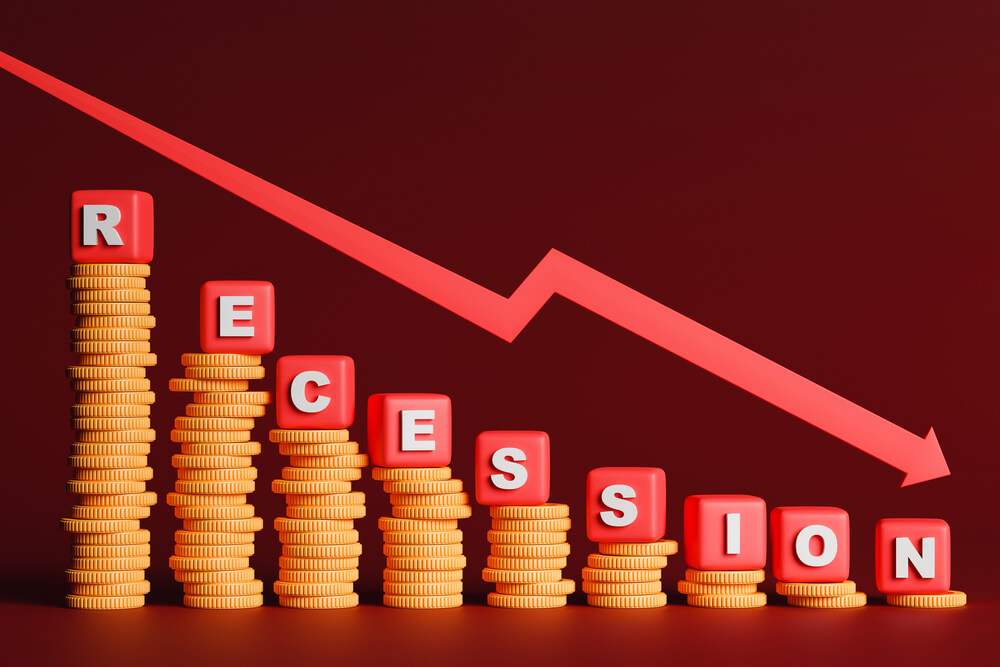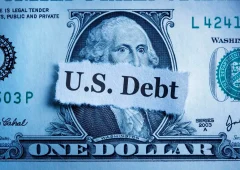US Recession Risks Drop as Market Outlook Improves
11.09.2024 17:00 1 min. read Alexander Stefanov
Recent indicators suggest that the U.S. may avoid a recession in 2024, reversing earlier concerns.
Data from Polymarket shows that as of September 9, the probability of a recession has fallen to just 7%, a significant drop from August’s peak of 30%. This prediction market bet, which runs until the end of the year, has garnered nearly $245,000 in wagers.
A recession would be marked by two consecutive quarters of negative GDP growth. Despite recent weak job reports, the overall outlook has improved. Speculation is also swirling around a potential 25 basis point interest rate cut by the Federal Reserve, though the exact impact remains uncertain.
Economic opinions are mixed. Economist Peter Schiff believes that the Fed’s actions won’t stave off a recession and suggests that the U.S. might already be in one.
Meanwhile, Market Maestro forecasts a recession could materialize within the next 12 to 24 months, with a possible soft landing if conditions stabilize. Conversely, Henrik Zeberg anticipates a near-certain recession, predicting a rally in markets before a downturn.
Overall, the likelihood of a recession hinges on the forthcoming Federal Reserve interest rate decision.
-
1
Economic Instability and Political Shift Fueling Bitcoin’s Rise – Galaxy Digital CEO
23.05.2025 12:00 2 min. read -
2
Trump Renews Attack on Fed Chair, Calls for Immediate Rate Cuts
18.05.2025 8:00 1 min. read -
3
Japan’s Inflation Hits 3.5% as Food Prices Soar and Tariff Risks Loom
23.05.2025 21:00 1 min. read -
4
US Dollar Dominance Under Threat Amid Yuan’s Global Ambitions
22.05.2025 14:00 2 min. read -
5
Wall Street Analyst Sees Bright Side of Ballooning U.S. Debt
30.05.2025 8:00 2 min. read
Tariffs Threaten to Stall U.S. Growth in 2025, Recovery Not Expected Until 2026
The U.S. economy may be closer to a downturn than many realize, according to Jay Bryson, chief economist at Wells Fargo.
Dollar Faces Deep Decline as Fed Cuts Pressure Currency, Warns Morgan Stanley
Morgan Stanley has issued a cautionary outlook on the U.S. dollar, predicting a major decline over the coming year as Federal Reserve rate cuts take hold.
Trillions in Debt Payments Could Break U.S. Economy, Ray Dalio Predicts
Legendary investor Ray Dalio has issued a stark warning about the trajectory of U.S. government finances, suggesting the country is drifting toward a series of severe economic shocks unless its debt spiral is urgently addressed.
Wall Street Veteran Warns Tariffs Could Disrupt AI-Driven Market Rally
Steve Eisman, the famed investor known for forecasting the 2008 housing collapse, is sounding the alarm—not on overvalued tech stocks or interest rates, but on the escalating risk of global trade disputes.
-
1
Economic Instability and Political Shift Fueling Bitcoin’s Rise – Galaxy Digital CEO
23.05.2025 12:00 2 min. read -
2
Trump Renews Attack on Fed Chair, Calls for Immediate Rate Cuts
18.05.2025 8:00 1 min. read -
3
Japan’s Inflation Hits 3.5% as Food Prices Soar and Tariff Risks Loom
23.05.2025 21:00 1 min. read -
4
US Dollar Dominance Under Threat Amid Yuan’s Global Ambitions
22.05.2025 14:00 2 min. read -
5
Wall Street Analyst Sees Bright Side of Ballooning U.S. Debt
30.05.2025 8:00 2 min. read


